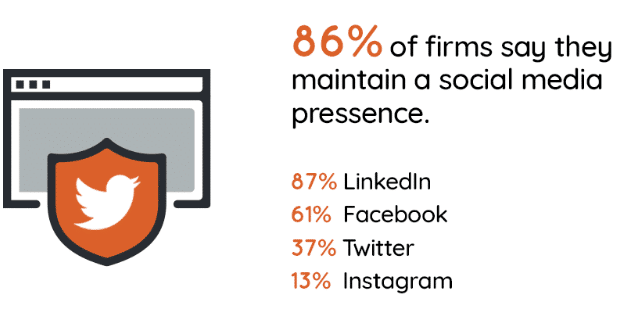Are you driving in Kansas, Missouri, or Florida? Do you want to make sure you’re following the window tinting laws? Understanding these regulations is crucial for drivers nationwide. Since these laws can differ from state to state, it’s important for you to know the rules in your area before tinting your windows. This guide will walk you through the specific laws governing window tinting in these three states.
What is Window Tinting?
Window tint, also known as window film, refers to the process of applying a thin laminate film to a vehicle’s glass in order to darken it. This process is like putting sunglasses on your car’s windows.
People have various reasons for choosing to tint their car windows. It helps in reducing the amount of sunlight and heat that enters, making the interior cooler. Additionally, it offers protection from harmful UV rays, including UVA. Tinting also provides added privacy since it makes it harder for people outside to see inside. Some people do it for style, to give their car a sleek look.
However, it’s important to follow the rules about how dark the tint can be, because too dark can be unsafe, especially at night. Keep in mind that different places have different laws about how much tinting is allowed.
General Window Tinting Laws
Windshield: Most states require the windshield to allow at least 70% of visible light (VLT) to pass through. Some states allow a darker tint on the uppermost part of the windshield, but this tint cannot be red or amber, and it cannot distort vision or reflect excessive sunlight or headlight glare.
Front side windows: Most states require the front side windows to allow at least 27% VLT. Some states allow a darker tint on the front side windows if the back side windows and rear window are also tinted, but the tint cannot be so dark that it obscures the driver’s view.
Rear side windows and rear window: Most states allow the rear side windows and rear window to be tinted as dark as desired, as long as the vehicle is equipped with both left and right side rear view mirrors.
Restricted Colors: Some states restrict the use of certain colors of window tint, such as R (Red), A (Amber), Y (Yellow), B (Blue), G (Gold), and BK (Black). It is important to check the laws in your state to see if there are any restrictions on the color of window tint that is allowed.
Kansas Window Tinting Laws
Windshield: Non-reflective tint is allowed above the manufacturer’s AS-1 line.
Front side windows: Tint must allow more than 35% of light in.
Back side windows: Tint must allow more than 35% of light in.
Rear window: Tint must allow more than 35% of light in.
Metallic or mirrored tint is illegal in Kansas.
Tint Darkness: The tint on the front side windows, back side windows, and rear window of a sedan in Kansas cannot be darker than 35% VLT (visible light transmission). This means that at least 65% of the light must be able to pass through the tint.
The windshield can have non-reflective tint above the manufacturer’s AS-1 line.
Reflectivity: Some states limit the amount of reflectivity that is allowed in window tint. In Kansas, there is no limit on the amount of reflectivity that is allowed in window tint.
Tint Color: Some states have restrictions on the color of window tint that is allowed. In Kansas, there are no restrictions on the color of window tint that is allowed, as long as it is not metallic or mirrored.
Medical exemptions: Drivers with a valid physician’s prescription may be allowed to tint their windows darker than the legal limits.
Side Mirrors: Dual side mirrors are required if the back window is tinted.
Restricted Colors: RED, AMBER, and YELLOW colors are not allowed.
Fines: Violation of window tinting laws in Kansas can result in a fine of up to $250.
Missouri Window Tinting Laws
Windshield: Non-reflective tint is allowed above the manufacturer’s AS-1 line.
Front side windows: Tint must allow more than 35% of light in.
Back side windows: Tint may be any darkness.
Rear window: Tint may be any darkness.
Metallic or mirrored tint is illegal in Missouri.
Tint color: There are no restrictions on the color of window tint that is allowed in Missouri, as long as it is not metallic or mirrored.
Reflectivity: No window tint on any side or rear window of a vehicle in Missouri may be more than 35% reflective.
Medical exemptions: Drivers with a valid physician’s prescription may be allowed to tint their windows darker than the legal limits.
Violation of window tinting laws in Missouri can result in a fine of up to $200.
Florida Window Tinting Laws
Windshield: Non-reflective tint is allowed above the manufacturer’s AS-1 line.
Front side windows: Tint must allow more than 28% of light in.
Back side windows: Tint must allow more than 15% of light in.
Rear window: Tint must allow more than 15% of light in.
Metallic or mirrored tint is illegal in Florida.
Reflectivity: Front side windows cannot be more than 25% reflective. Back side windows and the rear window cannot be more than 35% reflective.
Tint color: Florida does not permit any colored tint.
Medical exemptions: Drivers with a valid physician’s prescription may be allowed to tint their windows darker than the legal limits.
Violation of window tinting laws in Florida can result in a fine of up to $114.
Tips for Compliance and Safe Tinting
Tips for Compliance:
- Check the window tinting laws in your state and local area. Window tinting laws vary from state to state and even city to city, so it is important to make sure that you are compliant with the laws in your area.
- Choose a qualified window tinting professional. A qualified window tinting professional will be able to help you choose the right tint for your vehicle and install it properly.
- Get a certificate of compliance from the window tinting professional. This certificate will show that your vehicle’s window tinting is compliant with the laws in your area.
Tips for Safe Tinting:
- Make sure that the window tinting professional uses high-quality materials. Low-quality window tinting can be dangerous and may not provide the protection that you need.
- Make sure that the window tinting professional installs the tint properly. Improperly installed window tint can be a hazard and may not provide the desired level of protection.
- Test the window tinting after it has been installed. Make sure that you can still see clearly out of all of the windows and that the tinting is not interfering with your visibility.
Conclusion
Understanding and following window tinting laws in Kansas, Missouri, and Florida is not only a legal obligation but also a step towards safer and more comfortable driving. By following the specific regulations outlined in this guide, you can ensure compliance with state laws and enjoy the benefits of window tinting.
Remember, staying informed about tinting percentages and exemptions is crucial to avoid any potential fines or penalties. Prioritize safety and legality by familiarizing yourself with the tinting laws in your respective state. For a seamless and hassle-free experience, trust in the expertise of certified professionals who can apply window tint that meets all legal requirements. Drive confidently, knowing you’re in full compliance with the window tinting laws of your state.
FAQ
Why Is Window Tint Illegal In Some States?
Window tint can be illegal in some states. This is because it can interfere with visibility, especially at night. Which can be a safety concern for drivers and it can also make it difficult for law enforcement officers to see inside vehicles.
Can You Get Pulled Over For Having Tinted Windows?
Yes, you can get pulled over for having tinted windows if they are too dark and violate state regulations. Law enforcement officers may conduct checks to ensure that the level of tinting complies with local laws.
Is Limo Tint (Blacked Out Tint) Legal?
Limo tint is typically illegal in most states on passenger vehicles. This is because it’s darker than what is allowed by law and can interfere with the driver’s view.
What is the darkest legal tint in the US?
The darkest legal tint in the US varies from state to state. However, most states have a limit of 35% VLT (visible light transmission). This means that at least 65% of the light must be able to pass through the tint.
Written By:
Steven Hopkinson
Steven Hopkinson, a distinguished figure in the automotive industry, co-owns Flying Window Tinting alongside his father, Sean. Renowned as Orlando’s premier auto window tinters, their 40 years of expertise reflect their commitment to excellence. With a passion for sharing knowledge, they empower car owners in achieving their desired tints, setting a benchmark of professionalism and skill.
























Recent Comments